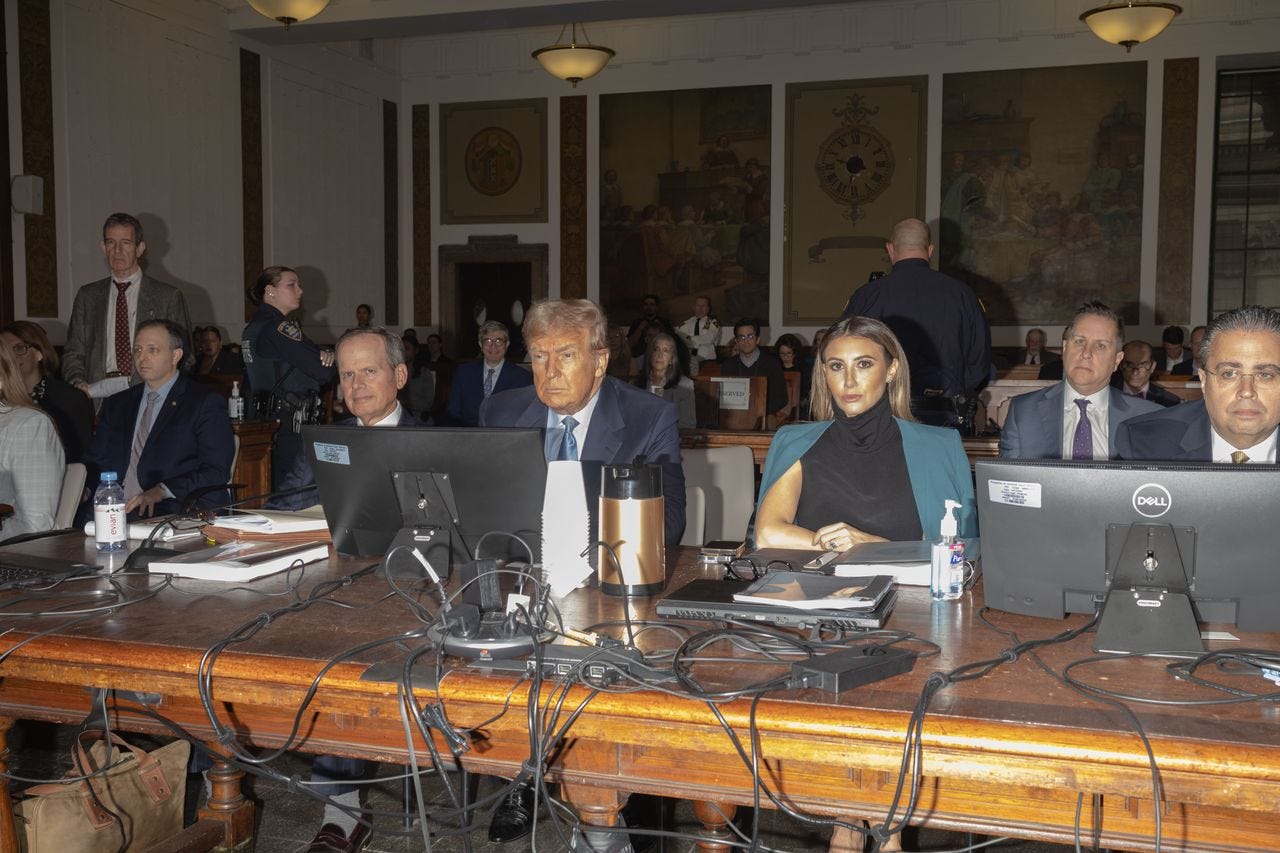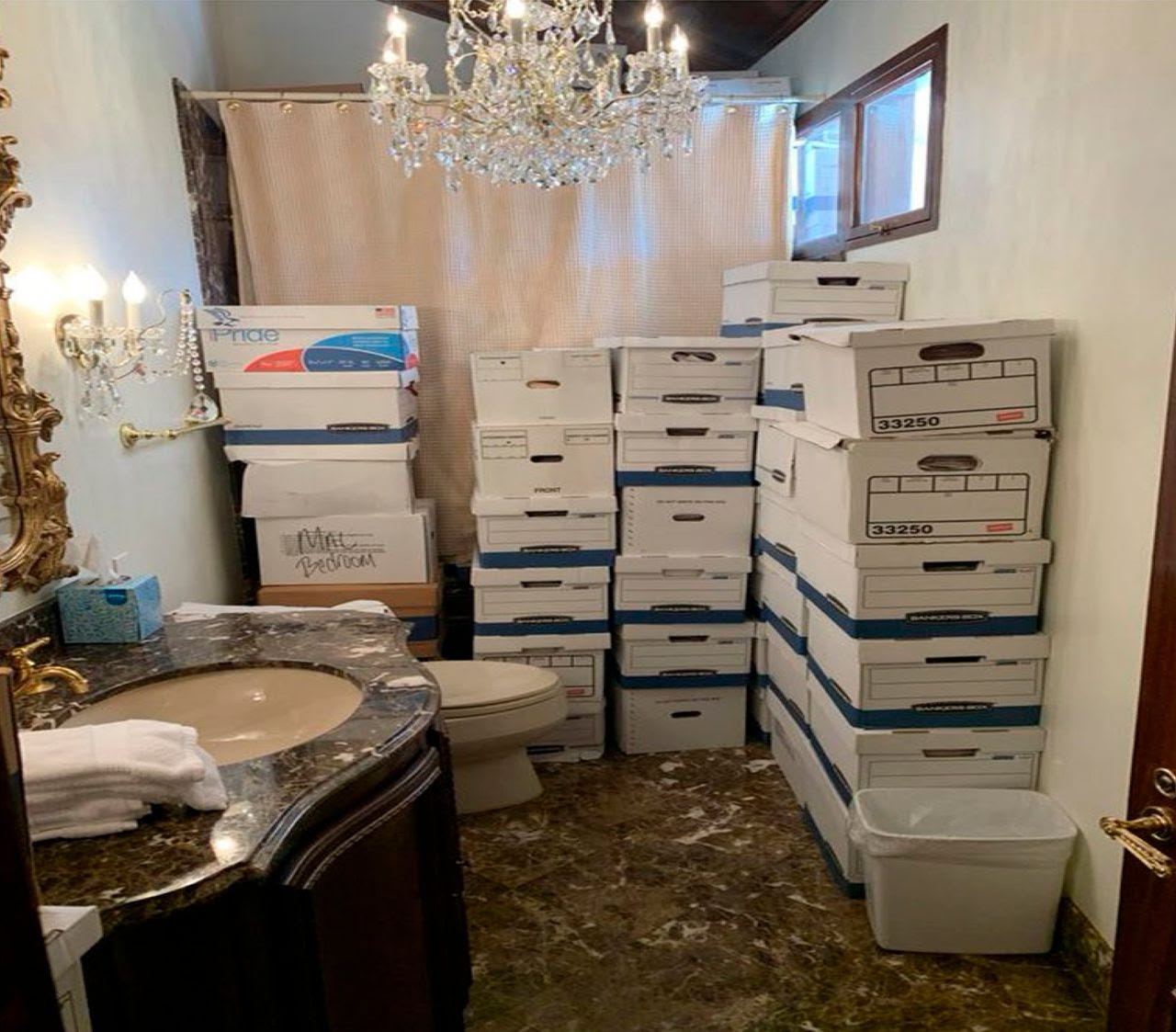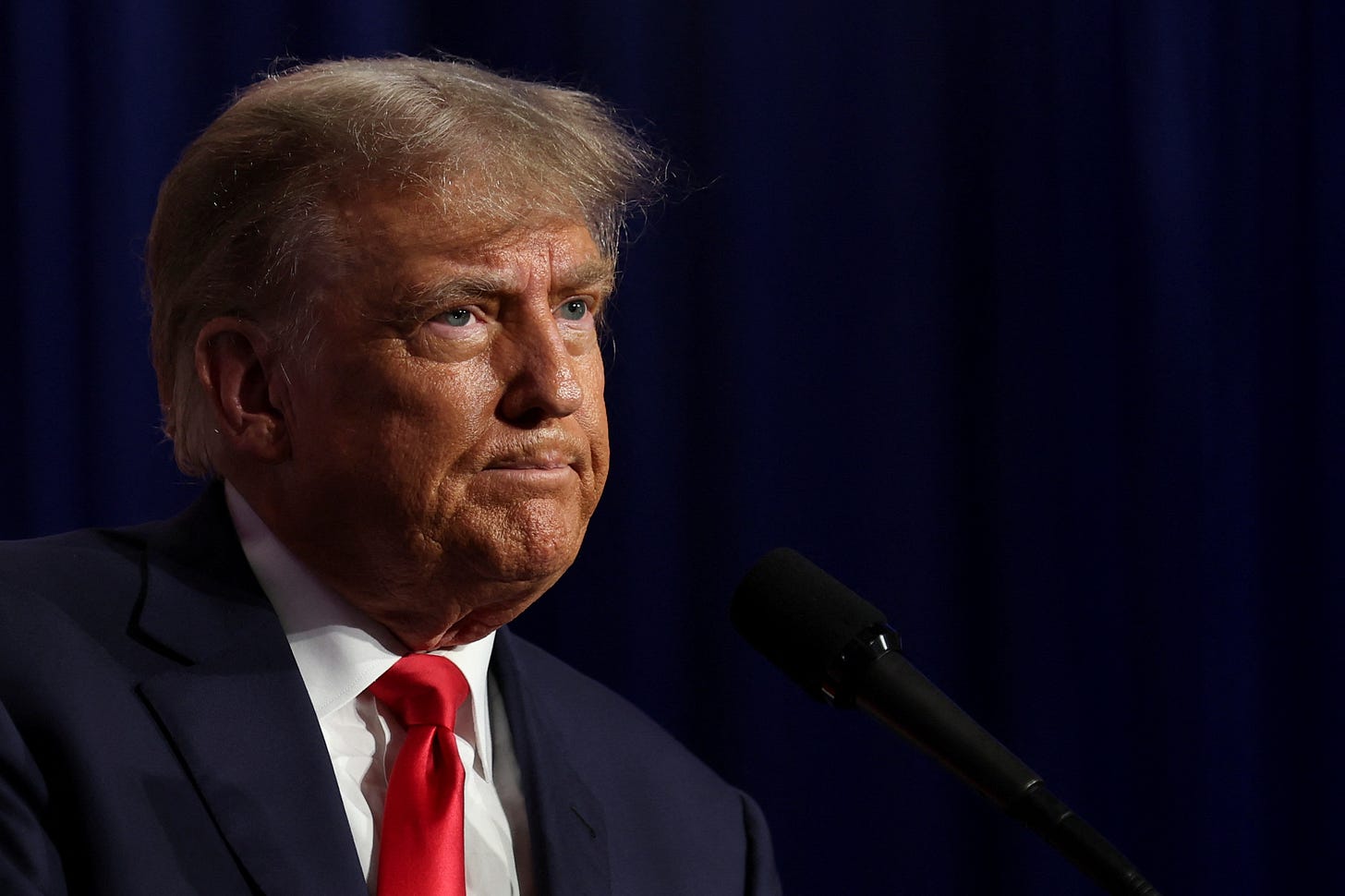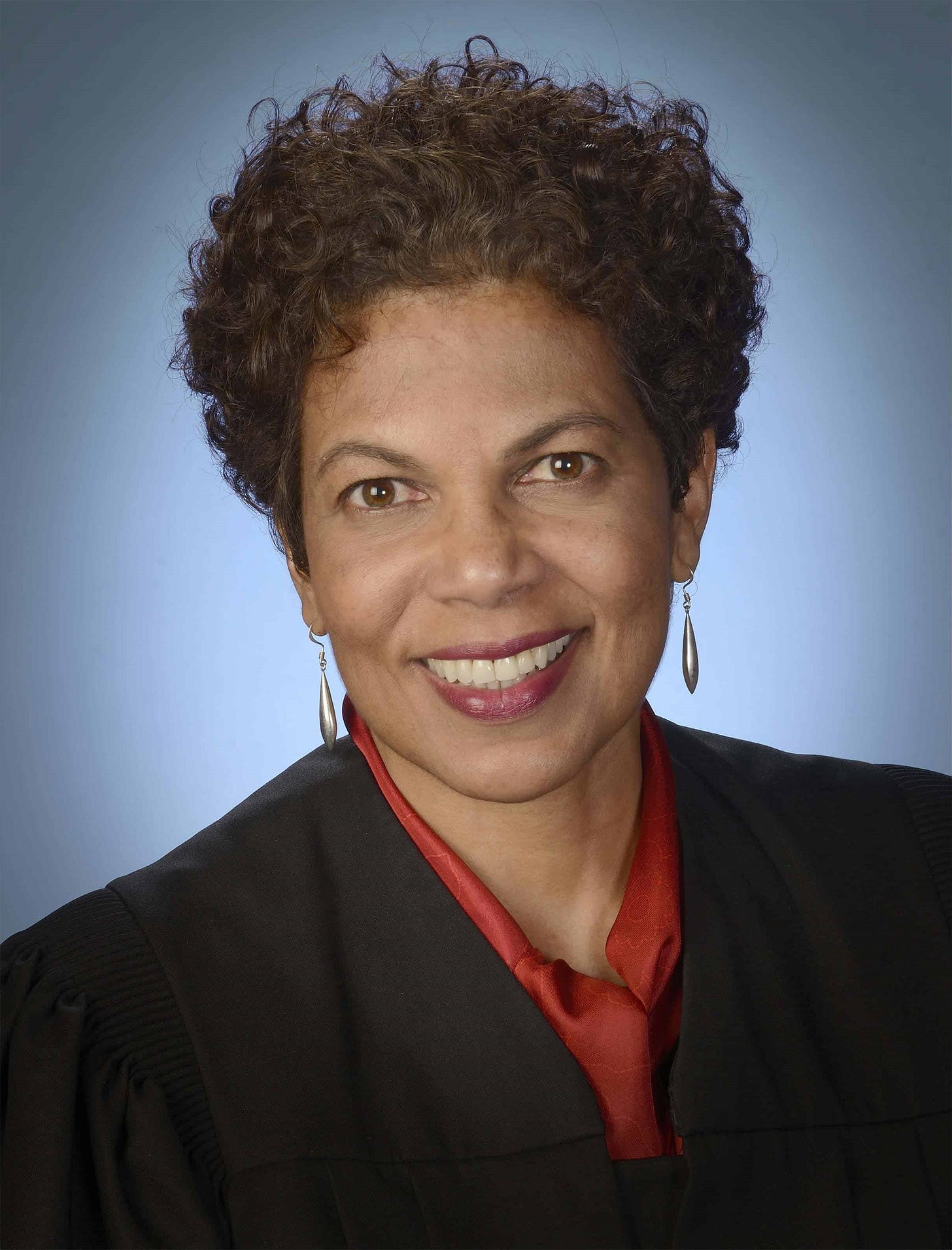Trump Trials: Donald to Testify Today; Ivanka, on Wednesday
The Trump Legal Quagmire: The Week That Was— a Detailed Look at the Progress of Each Case. And, What's Coming Up.

Weekly Summary: Trump's Legal Battles Intensify
With the temporary lifting of Judge Tanya S. Chutkan's gag order by the appellate court, all eyes are on former President Donald Trump as he prepares to testify in the New York Civil Fraud case today. This crucial development comes amidst a whirlwind of legal activity, particularly in this case where the Trump entities could be hit with a staggering $250 million penalty. Although the nature of the civil trial precludes any prison time, the stakes are nonetheless high. The public's anticipation for Trump’s testimony is palpable, marking a crucial moment in the proceedings. Notably, in the U.S. legal system, while defendants in criminal cases have the right to abstain from testifying against themselves, Trump’s testimony in a civil context underscores the uniqueness of this scenario and promises to shed new light on the intricacies of the case.
New York Civil Fraud Case: Trump Family in the Spotlight
As the New York Civil Fraud trial against the Trump Organization continues, anticipation mounts with Donald Trump himself expected to testify today (on Monday, November 6). The case centers on allegations of the company's misrepresentation of property values to secure advantageous loan and insurance terms. Eric Trump has expressed that his father is energetically prepared for his moment in court. This follows the testimonies of Donald Trump Jr. and Eric Trump, bringing additional scrutiny to the family's business practices. With Ivanka Trump also scheduled to provide her testimony on Wednesday, November 8, the proceedings are poised to escalate in intensity, potentially unravelling further implications for the Trump family and their corporate legacy. The unfolding events in this trial form a critical narrative in the series of legal challenges facing the former President.

The Classified Documents Case in Florida
Scheduled to commence on March 4, the trial for the classified documents case, overseen by Judge Aileen M. Cannon in Florida, threatens to extend its timeline due to the elaborate nature of pre-trial motions. This litigation presents yet another dimension to the complex legal battles faced by former President Trump, stemming from allegations of mishandling classified documents at his Mar-a-Lago residence. The potential for delay is exacerbated by the concurrent legal proceedings Trump is involved in.
At the heart of this case are matters pivotal to national security, namely the custody and control of classified materials once held by a former president. The dilemma of how to securely present these documents in a public forum raises intricate questions about who is privy to such sensitive information and under what conditions. Security clearance protocols for legal personnel further complicate the process. Given the complexity of these concerns, it is likely that Judge Cannon may play an active role in navigating the tension between upholding rigorous security standards and ensuring the right to a fair trial.
The D.C. Election Obstruction Allegations
In Washington D.C., the spotlight falls on Trump as he faces allegations of orchestrating an obstruction of the 2020 election certification. The momentum towards jury selection is indicative of the judiciary's resolve to advance the proceedings. This case probes the bedrock of the American democratic process, with the potential to shape the future protection of electoral integrity. Although the commencement date of March 4, 2024, does not guarantee an immediate start, the pace set by Judge Chutkan reflects a clear intent to adhere to the scheduled timeline, signaling a more expeditious approach compared to the slower-moving case in Florida.
The Georgia Election Interference Case
The Georgia State case against Trump and his associates casts a spotlight on alleged efforts to manipulate the 2020 election outcome. A significant element of this legal battle is the emerging defense strategy. Co-defendants, including Harrison Floyd, are seeking expansive election records, ostensibly to substantiate claims that challenge the election's legitimacy. This stance could potentially unfold a contentious legal argument, suggesting that the election was fraudulently conducted. As the state levels 13 charges against Trump, with 18 individuals implicated and four having entered guilty pleas, the defense's push for these documents underscores a broader dispute over the 2020 election's integrity. The strategy's viability remains to be seen, with no trial date set yet, and its implications resonate beyond the courtroom, touching upon the nation's electoral trust and governance.
The Stormy Waters of the New York State Business Fraud Case
Lastly, in a separate New York State case, Trump faces charges connected to a 2016 hush money payment. While there have been no significant developments in the past week, the upcoming trial is expected to scrutinize the ethical and legal boundaries of Trump's business dealings.
Interim Hold on Gag Order Reflects Free Speech Consideration
The U.S. Court of Appeals for the D.C. Circuit has provisionally lifted the gag order imposed on former President Donald Trump, reflecting the high value placed on First Amendment rights within the American legal system. This interim decision allows Trump to express his views on the personnel involved in his federal election obstruction case, despite previous concerns that such utterances could border on harassment or intimidation. The gag order, originally instituted by Judge Tanya S. Chutkan, aimed to safeguard the trial's integrity and its participants, amidst fears of potential threats similar to those experienced by those Trump has criticized in the past. With the full appellate verdict pending, and briefs due in the coming weeks from both sides, the panel, comprising appointees from Presidents Obama and Biden, is tasked with balancing the constitutional commitment to free speech against the necessity to maintain judicial fairness and personal safety within high-stakes litigation.
Judge's Impartiality in Trump Documents Case
Amid the legal labyrinth surrounding former President Trump, Judge Aileen M. Cannon's role in the classified-documents case stands out. Appointed to the bench by Trump, her assignment to the case—determined by a random process—has sparked debate over judicial impartiality. While federal law dictates recusal when a judge's neutrality is questionable, the mere fact of a judge's appointment by the President in question does not mandate it. However, Cannon's previous rulings, such as the controversial delay of the FBI's document review, overturned by the 11th Circuit, could influence calls for her recusal to ensure an unbiased trial.
Summing Up
Each case, distinct in its nature and potential consequences, presents a piece of the puzzle that is Trump’s post-presidential life. Collectively, they form a complex tapestry of legal scrutiny that could redefine the future of political accountability. The legal roads that lie ahead for Trump are intertwined with critical questions about governance, ethics, and the sanctity of America’s democratic institutions.








Loos like his days are over! Nature is a big leveler!